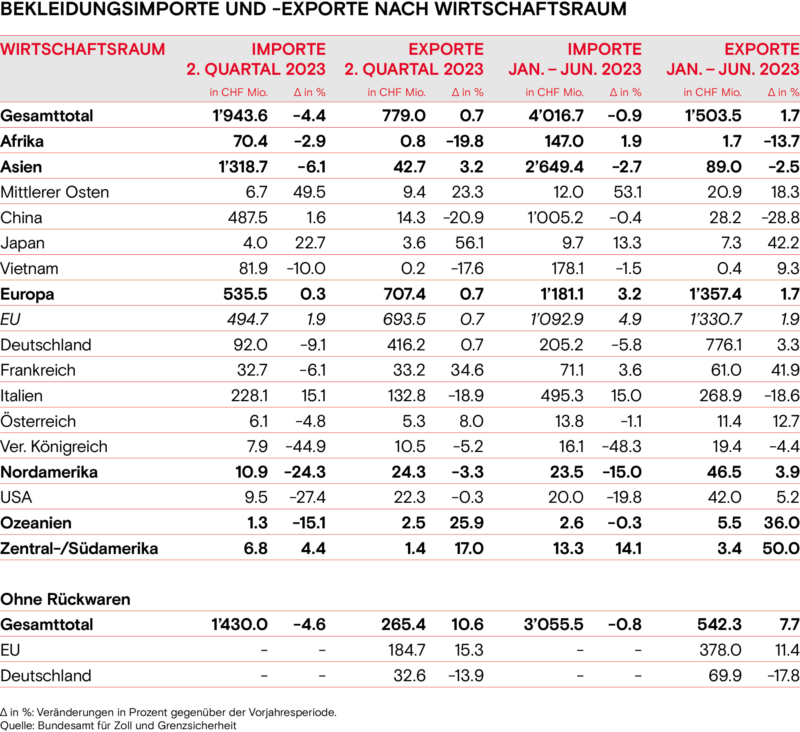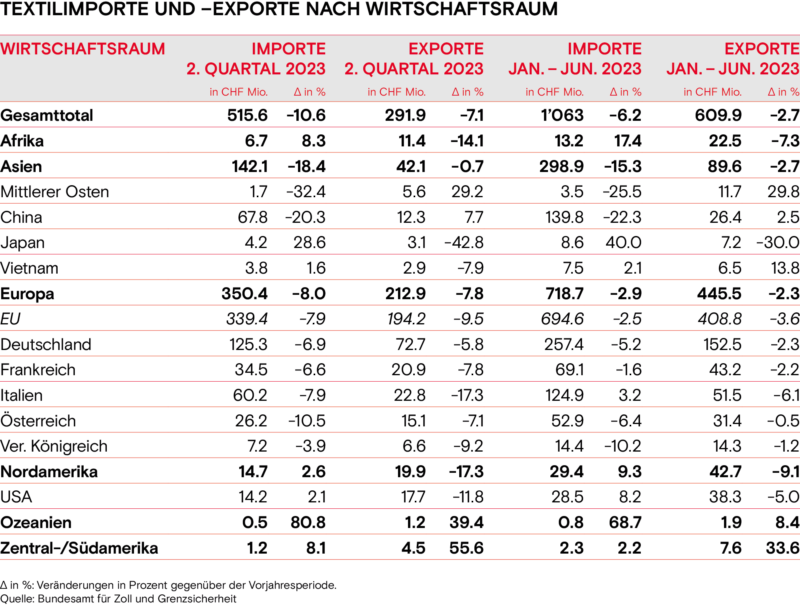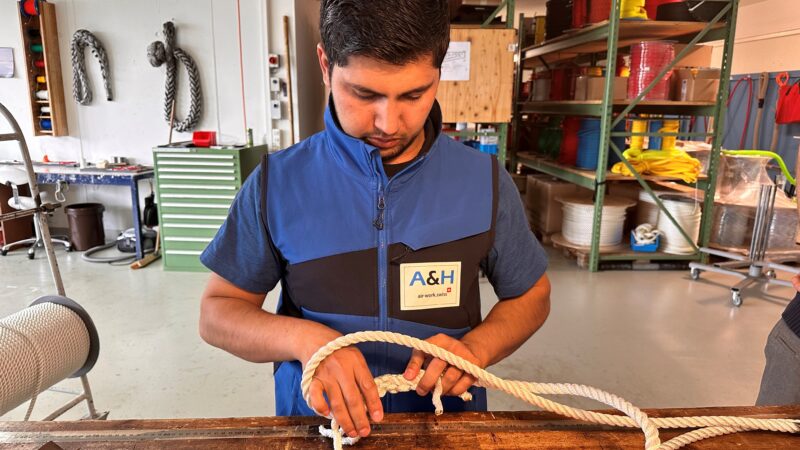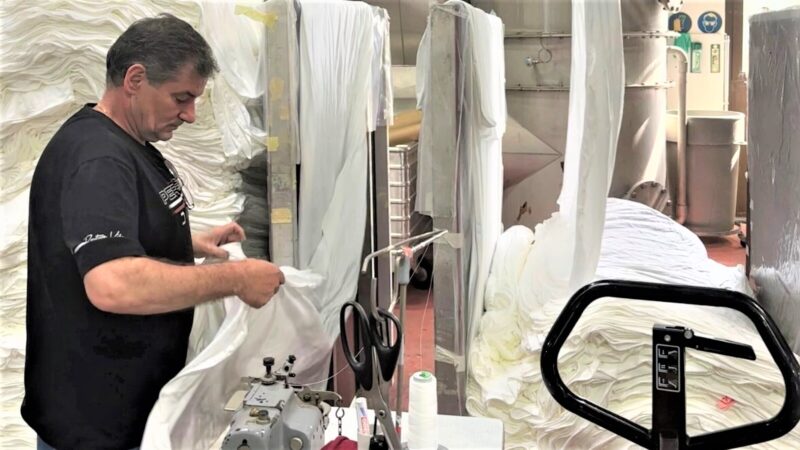comment
It is high time to act and negotiate

The European Union is by far our most important partner. Bilateral relations are in an impasse at present and getting worse all the time. This uncertainty is toxic for our SMEs. It is high time for the Federal Council to play its leadership role and open negotiations.
Do you hear anything about European policy in the ongoing general election campaign? Neither do I. And if we do hear anything at all, people try to persuade us that Europe’s importance is diminishing. We are told that the freedom of movement of persons is the root of all evil or that negotiations are not urgent. The situation is like the elephant in the room. For the textile and garments industry this is not just wrong it is dangerous. We need regulated relations with the EU. And we need them now.
Do you hear anything about European policy in the ongoing general election campaign? Neither do I.
from our economic report which was published in summer 2023
The EU is still our number 1
The world order and world economy are in a state of flux. It is true that Europe has become rather less important than other regions from the global perspective in recent years. But for our industry, the EU remains by far the most important market. In the first half of 2023, 70% of our textile and garment exports went to the EU. The pandemic revealed the fragility of global supply chains. That is why companies are diversifying their sourcing and looking increasingly for partners closer to home: in Turkey and North Africa, but also in Portugal, Romania, Italy or Germany.
We need regulated relations with the EU. And we need them now.
More than just a neighbour
These partnerships involve far more than just the trade in goods. They require cooperation for instance in research. On textile implants, fluid-filled yarns or recyclable fibres. Our firms and universities must not just be able to cooperate on the development of these products. They must also take the lead. Companies are also developing and making textile machinery, textile medicinal products and personal protective kit across national borders. However, the expiring mutual recognition agreement on technical barriers to trade (MRA) is creating a situation in which these very products can no longer be sold to the EU without additional complications.
A free trade agreement on its own is not enough for all this. We need the renewal of a full association with Horizon, a mutual recognition of product licences and an electricity agreement. What is more, the EU-Textile Strategy is another major regulatory project that will soon be implemented. It has a direct bearing on the Swiss textile and garments industry.
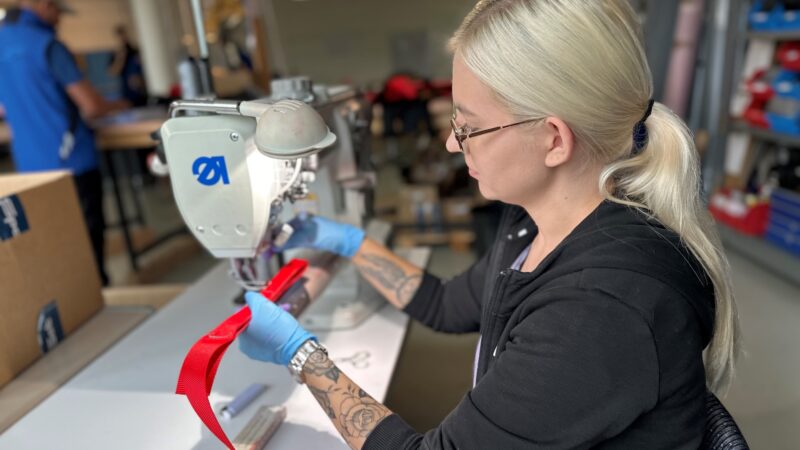
Freedom of movement of persons is part of the solution. Around one-quarter of our workforce comes from the EU. Image: AZ, Airwork & Heliseilerei
According to the Federal Statistical Office by 2050 half a million more people will be pensioners than the number joining the employment market. Image: AZ, Airwork & Heliseilerei
It is not immigration that is Switzerland's problem, but its ageing society
Free movement of persons is part of the solution
Back to the election campaign: if the EU is being discussed at all, it is primarily about the negative effects of the free movement of persons. It is not immigration that is Switzerland's problem, but its ageing society. According to the FSO, half a million more people will retire by 2050 than will enter the labour market - with negative consequences for old-age provision and the labour market. At 2.5 per cent, unemployment in the textile and clothing industry is at an all-time low. The shortage of skilled labour - despite massive training efforts in Switzerland - is at an all-time high. The free movement of persons is part of the solution: around a quarter of the labour force comes from the EU. The housing shortage and congestion in the transport infrastructure can certainly not be solved by restricting immigration, but rather by simplifying procedures and setting prices in line with the market.

Peter Flückiger
Chairman of the management board
T: +41 44 289 79 31
peter.flueckiger@swisstextiles.ch
